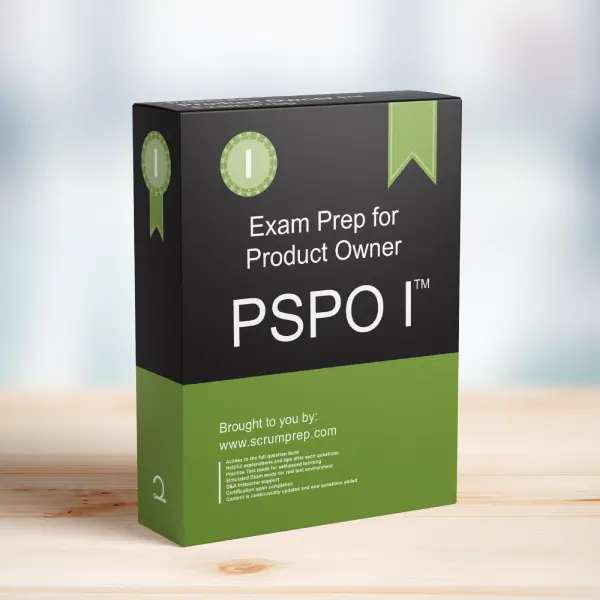Understanding Scrum: A Framework for Adaptive Solutions
Scrum is often misunderstood as a rigid methodology or a collection of best practices for software development. However, it is fundamentally a flexible framework designed to help teams generate value through adaptive solutions for complex problems. This article explores the true nature of Scrum, its core principles, and its relevance to the PSPO I exam.
Exam Question
Which statement best describes Scrum?
(choose the best answer)
A. A complete methodology that defines how to develop software.
B. A cookbook that defines best practices for software development.
C. A defined and predictive process that conforms to the principles of Scientific Management.
D. A framework to generate value through adaptive solutions for complex problems.
Correct Answer
D. A framework to generate value through adaptive solutions for complex problems.
Explanation
Correct Answer
D. A framework to generate value through adaptive solutions for complex problems:
Scrum is designed to address complex adaptive problems by delivering high-value products iteratively and incrementally. It provides a structure for teams to work collaboratively, inspect and adapt their processes, and continuously improve. The flexibility of Scrum allows it to be applied to various types of projects, not just software development, making it a versatile framework for managing complex work.
Incorrect Answers
A. A complete methodology that defines how to develop software:
Scrum is not a complete methodology; it does not prescribe specific practices or processes for software development. Instead, it provides a framework within which teams can apply various methodologies and practices as needed.
B. A cookbook that defines best practices for software development:
Scrum does not dictate best practices. It encourages teams to experiment, inspect results, and adapt their practices based on what works best for their specific context.
C. A defined and predictive process that conforms to the principles of Scientific Management:
Scrum is not a predictive process. It is based on empirical process control, where knowledge comes from experience and decision-making is based on what is known. It emphasizes adaptability and flexibility over predictability and control.
Responsibilities in Scrum
- Product Owner: The Product Owner is accountable for maximizing the value of the product resulting from the work of the Scrum Team. They manage the Product Backlog, ensuring it is ordered and clear to facilitate effective Sprint Planning.
- Scrum Master: The Scrum Master is responsible for promoting and supporting Scrum as defined in the Scrum Guide. They help everyone understand Scrum theory and practice, both within the Scrum Team and the organization.
- Developers: The Developers are responsible for delivering a potentially releasable Increment of “Done” product at the end of each Sprint. They self-manage their work and collaborate closely to achieve the Sprint Goal.
Relevance to the PSPO I Exam
Understanding the nature of Scrum as a framework for generating adaptive solutions to complex problems is essential for the PSPO I exam. This knowledge ensures that candidates can differentiate Scrum from rigid methodologies and appreciate its flexibility and focus on continuous improvement.
Key Takeaways
- Scrum is a framework, not a complete methodology or a collection of best practices.
- It is designed to help teams address complex problems through iterative and incremental delivery.
- Scrum emphasizes empirical process control, adaptability, and continuous improvement.
- Understanding the roles and responsibilities within Scrum is crucial for effective implementation.
Conclusion
Scrum’s strength lies in its flexibility and its focus on generating value through adaptive solutions. By understanding its core principles and how it differs from other methodologies, you can better appreciate its application in managing complex work. For more information on preparing for the PSPO I exam, visit our PSPO I Exam Prep.


